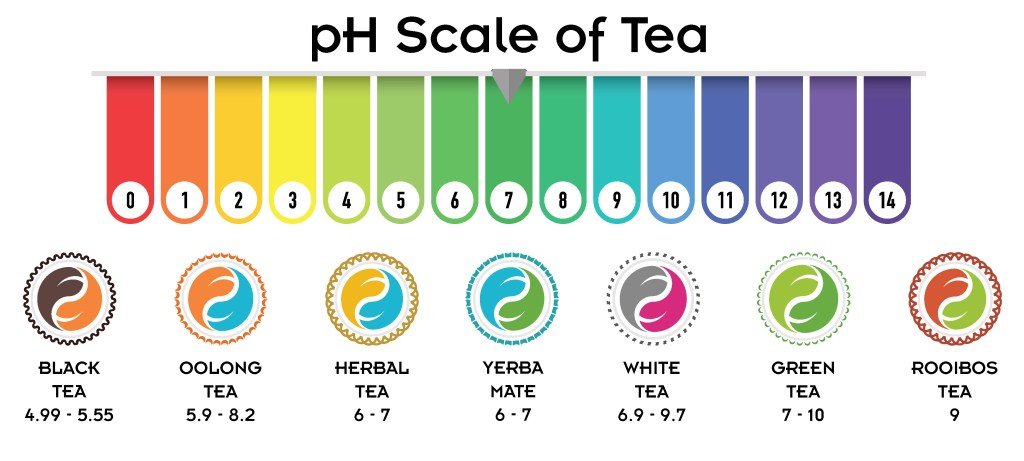All About Tea: Is Tea Acidic Explained
Yes, tea is generally acidic due to its tannic content, but the overall acidity can vary depending on the type of tea. Green and black teas tend to be less acidic than herbal teas. However, the acidity level of tea is not as high as that of coffee. Understanding the acidity of tea is essential for those with sensitive stomachs or acid reflux issues. Let’s explore the acidity of tea in more detail to shed light on this common question – is tea acidic?
Is Tea Acidic? Exploring the pH Levels of Tea
Welcome to our blog post dedicated to answering the age-old question: Is tea acidic? Whether you’re a tea enthusiast or simply curious about the science behind this popular beverage, we’re here to break down the acidity of tea in a way that’s easy to understand. Let’s dive in!
The pH Scale: Understanding Acidity
Before we delve into the acidity of tea, let’s first explore what acidity means in the context of beverages. Acidity is measured on the pH scale, which ranges from 0 to 14. A pH of 7 is considered neutral, while anything below 7 is acidic and anything above 7 is alkaline or basic.
Now, where does tea fall on this scale? Let’s find out!
Types of Tea: Variations in Acidity
Tea comes in various forms, each with its unique flavor profile and acidity levels. The main types of tea include black tea, green tea, white tea, and herbal tea. Let’s explore how the acidity differs among these varieties:
1. Black Tea
Black tea is known for its bold and rich flavor, but is it acidic? Yes, black tea is slightly acidic, with a typical pH range of 4.9 to 5.5. The acidity in black tea comes from natural compounds present in the tea leaves.
2. Green Tea
Green tea is celebrated for its health benefits and delicate taste. In terms of acidity, green tea is less acidic compared to black tea, with a pH ranging from 7 to 10, depending on the specific type and brewing method.
3. White Tea
White tea is prized for its subtle flavor and minimal processing. When it comes to acidity, white tea falls on the milder end of the spectrum, with a pH level typically around 6 to 7.
4. Herbal Tea
Herbal teas encompass a wide range of caffeine-free blends made from various herbs, flowers, and spices. The acidity of herbal tea varies greatly depending on the ingredients used, with some herbal teas being neutral and others slightly acidic.
Factors Affecting Tea Acidity
Several factors can influence the acidity levels of tea, including the type of tea leaves used, the brewing time and temperature, and any additional ingredients added to the tea. Let’s take a closer look at these factors:
1. Type of Tea Leaves
The type of tea leaves used plays a significant role in determining the acidity of the final brew. For example, teas made from younger tea leaves tend to be more acidic compared to those made from mature leaves.
2. Brewing Time and Temperature
The way tea is brewed can also impact its acidity. Overbrewing tea or using excessively hot water can lead to a more acidic taste, as certain compounds are extracted more rapidly at higher temperatures.
3. Additional Ingredients
Adding lemon or other citrus fruits to tea can increase its acidity levels, while sweeteners like honey may slightly lower the overall acidity. Experimenting with different additives can alter the taste and acidity of your tea.
Health Implications of Tea Acidity
Now that we’ve explored the acidity of tea, you may be wondering about its effects on health. While tea is generally safe for consumption, there are a few considerations to keep in mind:
Due to their acidity, some people with sensitive stomachs may experience discomfort when consuming highly acidic teas. In such cases, opting for lower-acid teas or consuming tea with food can help mitigate any potential issues.
Additionally, individuals with certain medical conditions such as acid reflux or GERD may find that highly acidic teas exacerbate their symptoms. In these instances, consulting a healthcare provider for personalized advice is recommended.
In conclusion, tea can be slightly acidic depending on the type and brewing method. Understanding the pH levels of tea and how factors like tea leaves and brewing techniques impact acidity can help you make informed choices when enjoying this beloved beverage.
Next time you sip on a cup of tea, take a moment to appreciate the delicate balance of flavors and acidity that make each brew unique. Whether you prefer a robust black tea or a soothing herbal blend, tea offers a world of flavors to explore!
We hope this article has shed light on the question, “Is tea acidic?” If you have any further queries or would like to share your thoughts on tea acidity, feel free to leave a comment below. Happy brewing!
Is Tea Alkaline or Acidic?
Frequently Asked Questions
Is tea acidic?
Yes, tea is considered to be acidic due to its natural components like tannins and polyphenols. These compounds can lower the pH level of tea, making it acidic in nature.
How does the acidity of tea affect the body?
The acidity in tea can have various effects on the body depending on an individual’s sensitivity. Some people may experience digestive issues or discomfort if they consume too much acidic tea, while others may not notice any significant impact.
Does the type of tea affect its level of acidity?
Yes, the type of tea can influence its acidity level. For example, herbal teas tend to be less acidic compared to black or green teas. Factors like brewing time and temperature can also impact the overall acidity of the tea.
Final Thoughts
In conclusion, tea is slightly acidic due to the presence of tannic acid and other compounds. However, factors like brewing time and type of tea can influence its overall acidity level. Despite its acidity, tea still offers numerous health benefits and can be enjoyed in moderation. To determine if tea is acidic, consider individual sensitivities and consult with a healthcare provider if needed. Remember, balance is key when enjoying beverages like tea.














Post Comment